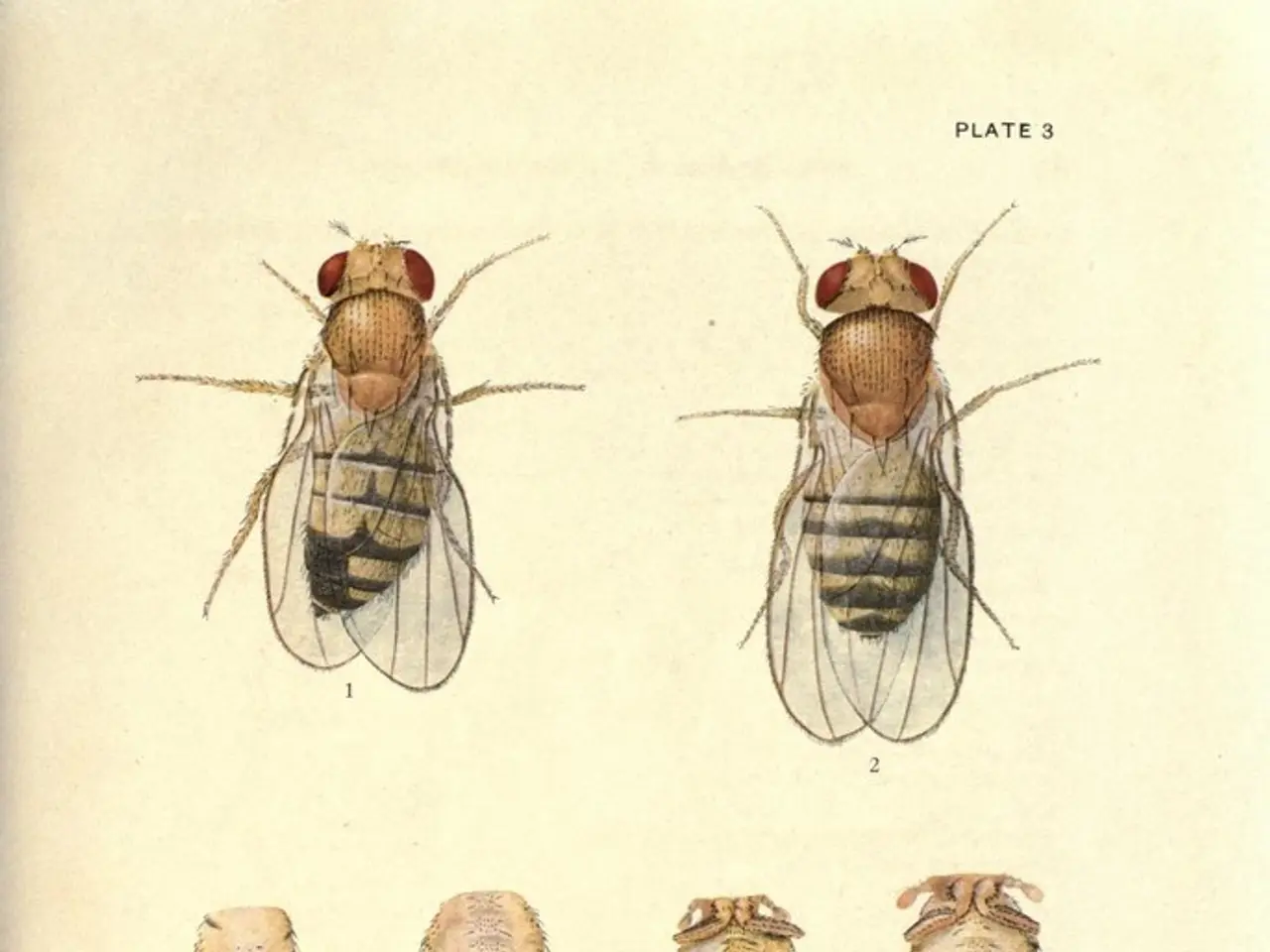Delve into the realm of insects with "Bugging Out": A compelling excursion awaits!
In the intricate web of life, insects play a pivotal role, serving as both pollinators for our food sources and as a primary food source for many mammals, fish, and birds. With over 1.5 million named insects, and many more yet to be discovered, these tiny creatures are a diverse and fascinating group.
Insects are not just essential for the ecosystem but also have a place in our homes and hearts. From pillows and jewelry to design elements in architecture, insects are celebrated as a tribute to their useful ways. This appreciation for insects has given rise to the "Bugging Out" trend, which encourages the creation of habitats for beneficial bugs.
Yet, it's crucial to avoid insecticides and practice organic, non-toxic methods of pest control to keep beneficial insects safe. By doing so, we can ensure a balanced ecosystem where predatory insects help control potential pests.
Insect farming could be a sustainable and profitable business for small farmers, with insects like mealworms and crickets being turned into "flours" for baking, and bees producing honey. Moreover, insects offer a variety of useful items, such as silk, wax, and dyes.
Many cultures have been eating insects for centuries, and this practice is gaining renewed interest. Insects are plentiful, inexpensive to farm, and low in fat but high in protein. Eating insects could provide a nutritious, low-cost food source for regions stricken by famine.
To attract insects to your garden, consider planting flowers and native plants that serve as food, cover, and hatching sites. The trend also includes attracting certain insects through beekeeping, insect hotels, and planting pollinator-friendly plants. Leaving leaves, logs, stumps, and other natural debris lying in the garden can provide hiding and mating places for insects.
Engaging kids in the world of insects is a key aspect of the "Bugging Out" trend. This can be done through ant farms, local insect tours, and fun books. By fostering an appreciation for insects at an early age, we can ensure their continued importance in our ecosystems.
Insects also play a crucial role in breaking down detritus into rich soil, contributing to the health of our planet. So, next time you see a bug in your garden, remember, it might just be a tiny but essential part of the ecosystem.
In conclusion, insects are more than just pests; they are vital players in our ecosystems, offering potential for sustainable businesses, and serving as a source of food and useful items for centuries. By understanding and appreciating their role, we can work towards a more balanced and sustainable world.
Read also:
- Peptide YY (PYY): Exploring its Role in Appetite Suppression, Intestinal Health, and Cognitive Links
- Toddler Health: Rotavirus Signs, Origins, and Potential Complications
- Digestive issues and heart discomfort: Root causes and associated health conditions
- House Infernos: Deadly Hazards Surpassing the Flames








